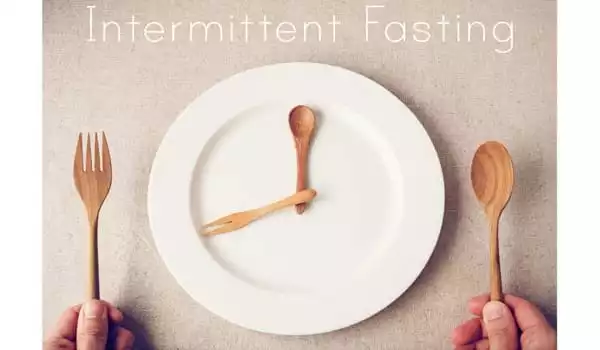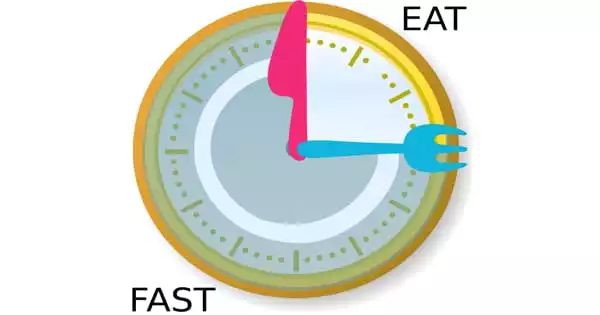According to a new study review led by University of Illinois Chicago researchers, intermittent fasting can result in clinically significant weight loss as well as improved metabolic health in individuals with obesity.
“We found that intermittent fasting is no better than regular dieting; both result in the same amount of weight loss and similar changes in blood pressure, cholesterol, and inflammation,” said Krista Varady, professor of nutrition at the University of Illinois at Chicago and author of “Cardiometabolic Benefits of Intermittent Fasting.”
According to the analysis published in the Annual Review of Nutrition, all forms of fasting reviewed resulted in mild to moderate weight loss, ranging from 1% to 8% of baseline weight, which is comparable to the results of more traditional, calorie-restrictive diets. Intermittent fasting regimens may also be beneficial to health by lowering blood pressure and insulin resistance, as well as cholesterol and triglyceride levels in some cases. Other health benefits have been demonstrated, such as improved appetite regulation and positive changes in the gut microbiome.
We found that intermittent fasting is no better than regular dieting; both result in the same amount of weight loss and similar changes in blood pressure, cholesterol, and inflammation.
Krista Varady
Over 25 research studies involving three types of intermittent fasting were examined in the review:
- Alternate day fasting, which typically consists of a feast day followed by a fast day in which 500 calories are consumed in one meal.
- The 5:2 diet is a modified version of alternate day fasting that consists of five feast days and two fast days per week.
- Time-restricted eating, which limits eating to a set number of hours per day, typically four to ten, with no calorie restrictions during the eating period.
Various studies of time-restricted eating show that participants with obesity lose an average of 3% of their body weight regardless of the eating window. According to studies, alternate day fasting resulted in weight loss of 3% to 8% of body weight over three to eight weeks, with results peaking at 12 weeks. According to the review, people who fast on alternate days do not overeat or binge on feast days, resulting in mild to moderate weight loss.
The 5:2 diet showed similar results to alternate-day fasting in studies, which surprised the study’s reviewers. The subjects who follow the 5:2 diet fast much less frequently than alternate-day fasting participants, but the weight loss results are comparable.

Both alternate day and 5:2 fasting result in weight loss comparable to more traditional daily calorie-restricted diets. Furthermore, both fasting diets demonstrated that individuals were able to maintain an average of 7% weight loss for a year.
“You’re tricking your body into eating a little less, which is why people are losing weight,” Varady explained. Varady added that the review aimed to dispel some myths about intermittent fasting. According to the studies reviewed, intermittent fasting has no negative effects on metabolism and does not cause disordered eating.
“People who fast are concerned about feeling drowsy and unable to concentrate. Your energy will not be affected if you do not eat “Varady stated. “On fasting days, many people feel a surge of energy. Don’t worry, you won’t be miserable. You might even feel better as a result.”
The review of studies includes a summary of practical considerations for those who want to try intermittent fasting. Among the factors to consider are:
- Adjustment period – After one to two weeks of fasting, side effects such as headaches, dizziness, and constipation subside. Increased water consumption can help relieve headaches caused by dehydration during this period.
- Exercise – Moderate to high-intensity endurance or resistance training can be done while fasting, and some study participants reported feeling more energized on fast days. However, studies show that those who practice alternate day fasting should eat their fasting day meal after exercise.
- Diet during fasting – There are no specific recommendations for food consumption during intermittent fasting, but eating fruits, vegetables, and whole grains can help boost fiber intake and relieve constipation, which can occur with fasting.
- Caffeine and alcohol – For those following an alternate day or 5:2 fasting plan, alcohol is not recommended on fast days because the limited calories should be spent on nutritious foods.
There are several groups who should not intermittent fast, according to the studies. Those individuals include:
- Those who are pregnant or lactating.
- Children under 12.
- Those with a history of disordered eating.
- Those with a body mass index, or BMI, less than 18.5.
- Shift workers. Studies have shown they may struggle with fasting regimens because of shifting work schedules.
- Those who need to take medication with food at regimented times.
“People enjoy intermittent fasting because it is simple. People must find diets that they can stick to in the long run. It is unquestionably effective for weight loss, and it has grown in popularity because no special foods or apps are required. It can also be combined with other diets, such as Keto “Varady stated.
Varady was recently awarded a National Institutes of Health grant to study time-restricted eating for a year to see if it works in the long run. Sofia Cienfuegos, Mark Ezpeleta, and Kelsey Gabel, all of UIC’s department of kinesiology and nutrition, are also authors on the paper.
















